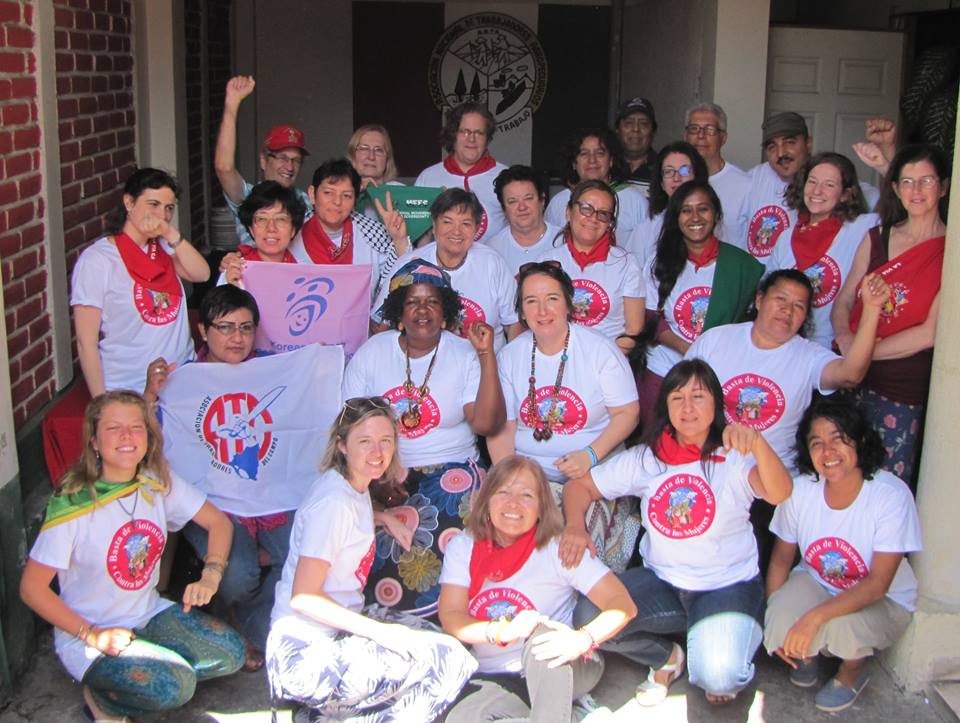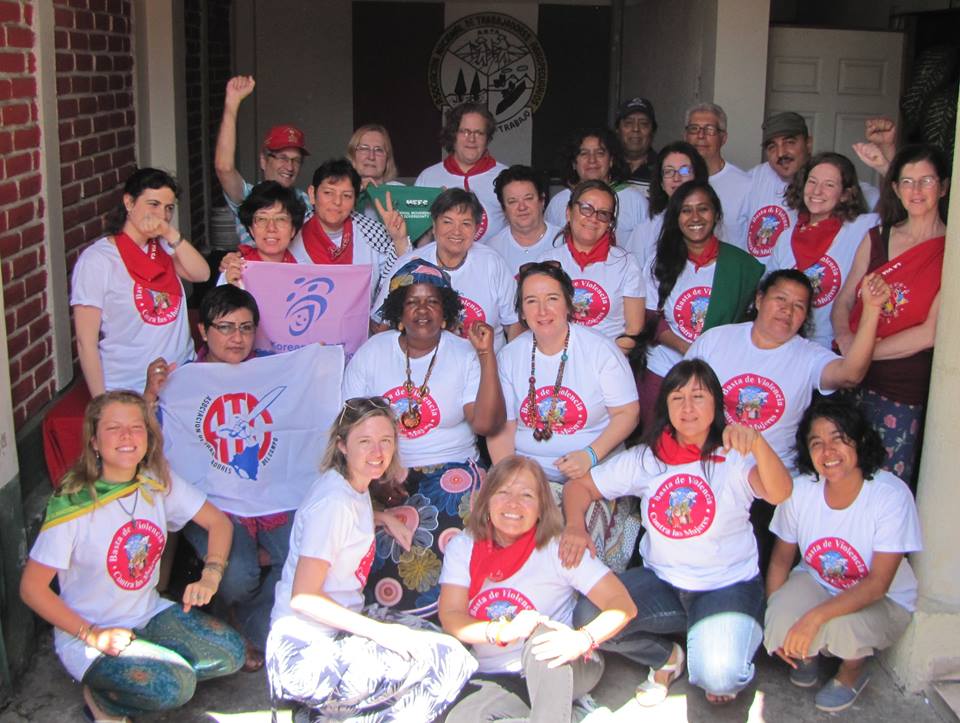“We want to come out stronger and have our rights respected”

Speaking with Inmaculada Ibáñez Vargas from Vía Campesina Europe, just months before the International Peasant Movement’s Seventh Conference.
 (21 February 2017) As part of the preparatory process for Vía Campesina’s International Conference, which will take place in July in the Basque Country, the women’s articulation group from Vía Campesina held a meeting at the organisation ANTA in El Salvador.
(21 February 2017) As part of the preparatory process for Vía Campesina’s International Conference, which will take place in July in the Basque Country, the women’s articulation group from Vía Campesina held a meeting at the organisation ANTA in El Salvador.
Andalusian Inmaculada Ibáñez, member of the women’s articulation group and leader of the women’s faction of the Coordinadora Agricultores Ganaderos (a major farmer organisation in Spain), spoke with Radio Mundo Real about the main topics that will be covered by the event. These will be angled from a peasant and popular feminism perspective.
She stressed, in particular, the lack of rights she witnessed granted to peasants in El Salvador and the negative impact this can have. Her visit to El Salvador was her first visit to Latin America. She also mentioned that as part of its Seventh Conference, Vía Campesina sets out to make the role of female peasants more visibile in food production.
In the interview, Inmaculada said that what is often called the “primary sector is extremely important because we are talking about food production”.
When asked about the situation faced by migrants who are attempting to get to Europe and the obstacles they encounter when trying to reach the EU, Inmaculada recalled that both Spain and Brussels have signed a series of agreements that allow migrants to gain access to their territories.
“We want to come out stronger and have our rights respected”, said Inmaculada in her conversation in El Salvador, where she was speaking about the desired outcome of the peasant conference in the Basque Country.
Inmaculada said that the lack of protection rights and social security enjoyed by peasant men and women in Central America constituted one of the starker contrasts between European peasants and their American counterparts.
She concluded by saying: “when people like us who work in the fields have rights, this doesn’t just improve our life quality but also the life quality of the population as a whole, because we are feeding the world and this is extremely important”.
